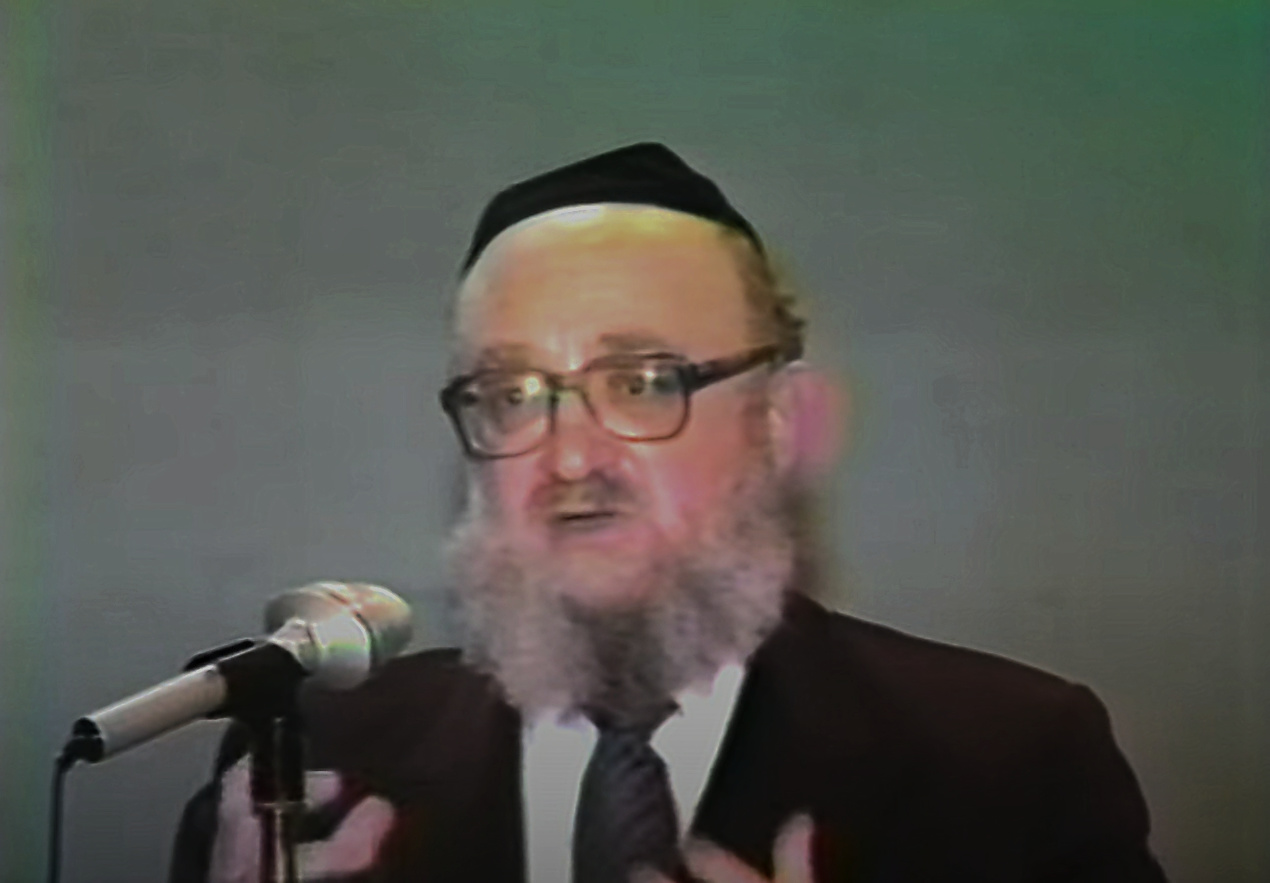By Rabbi Yair Hoffman for the Sefas Tamim Foundation
Parshas Tetzaveh is somewhat unique. It is the only parshah after Bereishis in which Moshe Rabbeinu’s name is strangely absent. Bereishis, of course, all took place before Moshe Rabbeinu was born. (In Dvarim, the entire sefer begins with, “These are the words that Moshe spoke,” so that counts for the entire sefer.) What is the reason that Moshe’s name does not appear in this week’s Parsha?
To help us answer the question, let us discuss an interesting Midrash. The Pasuk tells us (Exodus 28:1), “And you, bring close Aharon, your brother, and his sons… to serve as priests for me.” The Midrash Rabbah explains that when Hashem told Moshe to appoint Aharon as the High Priest (Kohein Gadol), he was displeased to a certain degree. Hashem saw his displeasure and responded, “The Torah is Mine, and I have given it to you.” What is Hashem trying to tell Moshe with this response and why was Moshe displeased to begin with? Was Moshe jealous that Aharon was chosen to be the Kohein Gadol instead of him?
Rav Nissan Alpert ZT”L, one of the foremost students of Rav Moshe Feinstein ZT”L, provides us with a remarkable explanation in his commentary, “Limudei Nissan.” Rav Alpert explains that Aharon’s defining character trait was that of absolute kindness (Chessed). As an example, regarding the Golden Calf, Aharon did not protest Bnei Yisrael’s desire to fashion an idol, because he knew that if he would have protested, they would have killed him like they killed his nephew Chur. If he would have been killed, there would have been severe consequences for Bnei Yisrael which Aharon sought to avoid in his great kindness and love for them. He chose kindness over truth and strict justice, which would have dictated that he protested the fashioning of the idol and if Bnei Yisrael killed him, then they would have deserved whatever punishments they were to receive.
Moshe Rabbeinu’s defining character trait, however, was that of truth and strict justice and he felt that, at least in regards to worshiping Hashem (Avodas Hashem), the proper method of conduct is only with the path of strict justice and absolute truth. Accordingly, he believed that one who has sinned and has not done complete repentance (Teshuva), should not be deemed to be fit to serve in the Bais HaMikdash and bring an offering to Hashem to repent for others when he himself has not fully repented for his own sins. Doing so would not be just and appear to be insincere and hypocritical.
Once Moshe saw that Hashem chose Aharon to be the Kohen Gadol, he saw that it was the Divine Will that even Avodas Hashem (e.g. the service in the Beis HaMikdash) should be done with the method of Aharon rather than the method of Moshe (i.e. kindness over truth and strict justice) and therefore, even someone who has not completely repented for his own sins may bring offerings to Hashem to repent on behalf of others.
Moshe was not jealous of Aharon. The degree of displeasure that he felt came from realizing that he was wrong in his belief that his defining characteristic of truth and strict justice is not correct when it comes to servicing Hashem.
And this is what Hashem is responding to when He says as the Midrash states above, “The Torah is Mine, and I have given it to you.” This means that “The Torah is Heavenly” – fit for the angels themselves who function through truth and strict justice, but “I have given it to you” – mankind, and it is made to be kept through kindness, to accommodate the frailties of man. In other words, for man to keep the Torah as it is intended, one needs to balance between its Heavenly nature – truth and strict justice, and kindness – to accommodate the frailties of man.
It is for this reason that Hashem asks Moshe to “bring Aharon close” in the Pasuk referenced above. Now that Hashem has chosen the path of Aharon (kindness), it requires careful oversight – by Moshe (truth and justice) and that is why Aharon needs to be brought close to him. In a similar vein, the Sages of the Torah who, like Moshe, value the principles of truth and justice are to oversee the use of kindness and be the arbiters of when we may compromise and deviate from truth and strict justice due to the weakness of man.
To return to our original question, why was Moshe’s name specifically not mentioned in this week’s Parsaha, let us recall that (Exodus 32:32) Moshe himself had begged Hashem to forgive Bnei Yisrael for their sin of worshiping the Golden Calf – that Hashem should judge them with kindness and mercy and if not, “Hashem should erase me from his Sefer.” Hashem is now erasing Moshe from his Sefer so to speak, by erasing him from this week’s Parsha which contains Moshe’s disappointment that his defining character trait was not chosen over Aharon’s. He did this to gently remind him that he should not be displeased, because he himself used Aharon’s characteristic successfully to bring atonement for Bnei Yisrael.
Why not subscribe to the Emes parsha sheet written by Rabbi Yair Hoffman? Each week there are four columns: One on the parsha, one on inspiration, one on halacha and one a translation of classical texts on Emes. Just send an email with the word “subscribe” to [email protected]












One Response
Rabbi Hoffman is daas toyrah